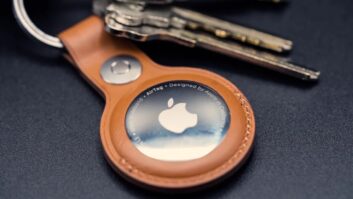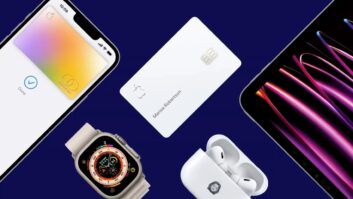San Francisco – Apple said it’s pointing the way to a post-PC world with the planned fall launch of the iOS5, which integrates with the company’s new iCloud service.
The content includes apps,
pictures and videos as well as documents created in iWorks on Apple’s mobile
devices.
The free iCloud service,
launching simultaneously with iOS5, will also automatically sync contacts, calendar
updates and email updates among multiple devices via cellular and Wi-Fi. Via
Wi-Fi, devices will also automatically back up their content once per day to
the Cloud.
The service will also let users
buy an app, song or e-book from the iTunes store and automatically push it from
the Cloud to a total of 10 iOS devices. With the service, users can also
manually upload all their ripped songs to the Cloud to synchronize them via
Wi-Fi with all their iOS devices, or they can pay $29.99/year for an iTunes
Match service that will scan the songs on a device, match them to iTunes’s 18
million songs, and push higher-quality versions of the songs to multiple iOS5
devices.
Also to cut a mobile device’s
connections to the PC, iPhone purchasers won’t have to connect their iPhone to
a PC to activate it, and they’ll be able to download iPhone software updates
over the air. iOS users will also be able create calendars and mailboxes right
from their mobile device.
In another major change, Apple is
creating its own messaging service to let iOS5 users send encrypted text,
picture and video messages via Wi-Fi or cellular to all other iOS5 users, even
those using an iPad or iPod Touch.
Those are among the more than 200
changes that Apple announced for its iOS here at its worldwide developers
conference, where CEO Steve Jobs stepped away from medical leave to announce
the iCloud services.
Other iOS changes include
wireless syncing via Wi-Fi from a mobile device to a PC; multitasking gestures
that will, for example, let users flick between apps; and wireless AirPlay
Mirroring, enabling an iPad 2 to wirelessly transmit what’s on its screen to a
TV via the Apple TV device.
For storing email, documents and
backup, consumers get 5GB of storage for free. The 5GB excludes storage for
music, apps and books purchased from Apple and for photos.
Users will be able to buy
additional storage at a rate to be announced in the fall.
For synchronizing pictures,
iCloud will store picture for 30 days, and each iOS device will automatically
store the last 1,000 pictures uploaded to the Cloud. Macs and PCs will store
all pictures permanently until manually deleted.
Other new features of iOS5
include:
–visual notification of email,
calendar updates, SMS messages, and news and sports alerts at the top of the
screen, similar to what the Android OS does, without interrupting use of an
app;
— a newsstand feature that
groups all magazines and newspapers in a newsstand app, which downloads
newspapers and magazines in the background;
— Twitter integration with apps,
enabling users to do such things as Tweet a picture from the photo app;
— an Improved Safari web browser
that lets users move a web story to the front and center of the screen and
append multiple pages of the story into one long page;
— a reminders app that not only
sends reminders to do tasks but also emits GPS-based reminders, such as
emitting an alert to call someone as you get neat the convention center or
hotel;
— ability to access the camera
app from the lock screen to take pictures quickly; and
— the ability to split the
virtual QWERTY keyboard into two for thumb typing.
Also at the developer’s
conference, Apple unveiled the Lion version of its OS X for Macs, which is due
in July and is priced at $29.99 for downloading to all authorized Macs owned by
the purchaser.
The upgraded OS adds multitouch
gestures on a touchpad, a Mission Control user interface that lets users get to
any window via three-finger swipe, Launch Pad feature to launch apps quickly
via pinching, an auto-save function to automatically save documents, and a
resume feature to resume where you left off in an application after closing and
then reopening the application.
Other Lion enhancements include built-in Mac
App Store, peer-to-peer Wi-Fi sharing of content, and built-in FaceTime.













